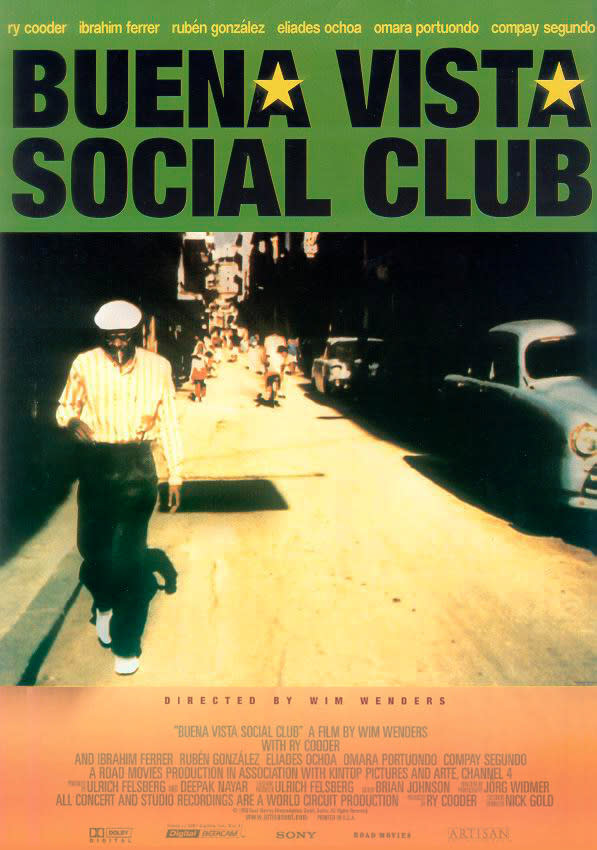U.S.-Cuba Thaw: What’s On The Horizon For Hollywood In Havana?

As the U.S. and Cuba move towards normalizing relations following more than half a century of diplomatic enmity, eyes are turning to the Caribbean island to assess its potential value to the film and TV businesses. The Peterson Institute for International Economics research group estimates U.S. exports of goods and services to Cuba could reach $5.9B annually over time — trade of goods was just $260M this year. Hollywood would like to be a part of the equation, but it won’t happen overnight.
Less than an hour’s flight from Miami and with a population of over 11 million (more than the Dominican Republic), Cuba could, down the road, become a notable market for Hollywood and Spanish-language fare. What’s more, the island is blessed with diverse locations and competitive labor costs. Big challenges await, however. After decades of under-development, Cuba is sorely lacking in exhibition infrastructure. Also problematic will be the question of censorship, as Cuban authorities, notwithstanding the current rapprochement with the U.S., maintain a tight rule over what can and cannot be seen. Imagine China, with more palm trees but less money.
“It’s not exactly open. Just because ties have been established has nothing to do with what will be approved for central distribution in a communist country,” says one industry exec. “I think you will start seeing production going there as unique location shooting.”

Cuba has already hosted a number of international films from European filmmakers unencumbered by the travel ban imposed — however frequently ignored — on U.S. citizens. Most famously, German director Wim Wenders shot award-winning documentary Buena Vista Social Club in Cuba and succeeded in creating a cottage industry with a revival in the danzon music practiced by the film’s protagonists.
More recently, Palme d’Or-winning French filmmaker Laurent Cantet (The Class) shot this year’s Return To Ithaca, a Havana-set dramedy about five friends reconvening after one of them has returned from 16 years in exile in Madrid.

Gael Nouaille, one of the producers of Return To Ithaca as well as 2012 omnibus 7 Days In Havana, spent time in Cuba on both of those films. He says there is a real tradition of cinema in Cuba, and a respected film school, but aging material and almost no movie theaters are the biggest challenges facing the local industry.
Crews are skilled and directors are well-trained while the material that is there is heavy, meaning fewer costs for productions traveling there to shoot — even if some of it is near obsolete. “The tradition exists, but the technology is getting old,” says Nouaille.
Movie theaters that were built in the 1950s are out of date and with local film body the Instituto Cubano del Arte e Industria Cinematográficos no longer buying movies to bring in, the distribution infrastructure has crumbled.
So, could an exhibitor pounce on an opportunity in the market? “It’s too early. They need it, but it would have to start with small theaters” says Nouaille. “There has to be a return to investment… Maybe in Havana, for the rich.”
Another issue facing the potential influx of Hollywood movies is clamping down on the rampant piracy that has existed in Cuba in the absence of any official diplomatic ties with America.
“Cuba could be a great market, similar to the Dominican Republic, growing to the size of Puerto Rico,” says Fox’s EVP of international distribution, Craig Dehmel. “But an exhibitor will need to build an infrastructure of modern multiplexes and we will need to close all the old theaters currently playing Hollywood titles illegally. It will take some time, but we are happy about any emerging market.”
Certainly, telcos will be lustily eyeing the prospect of developing and building communication pipelines on the island, which retains one of the lowest internet penetrations in the western world, according to a 2013 report by Harvard University. In spring 2013, the government activated two underwater fiber optic cables to increase speeds. But access remains an issue. At the time of the study, there were 118 cybercafés on the island, charging 70 cents an hour for the local version, and $5 an hour for global access. The average Cuban, according to the Harvard study, earns $12-$25 per month. The government agency that oversees the internet has said it will increase the number of cafés and reduce fees over time.
Cuba’s ultimate long-term strategic value may well come with how it eventually is positioned in the growing Spanish language TV market. Given its proximity to Miami, it could also boost that city’s burgeoning role as the key center for Latin American broadcasting. Many Cubans are understood to watch Colombian telenovelas and CNN en Espagnol, which are pirated via satellite from Miami.
In the meantime, an experiment is getting underway — just in time for the holidays and the rapprochement. Havana will see its first Broadway musical transfer in 50 years as producer Robert Nederlander Jr brings Rent to the island. The plans were already announced well ahead of the recent shift in diplomatic relations. The show opens tonight for a three-month run; tickets are 50 cents. Nederlander told The Telegraph the endeavor was more about “enjoyment and education” than money.
For all its natural beauty and charm, as well as its citizens, Cuba’s economy has been sheltered from the wider implications of being part of a consumer society. With many Cubans living off a handful of dollars a month, there is little disposable income, particularly with regards to spending on entertainment.
That is why the most immediately profound change that may come with the warming of ties is an influx of American film and TV productions to the island, bringing with them much-needed investment. Even though Cuba does not specifically offer tax breaks for foreign filmmakers, there are incentives for filming in the country, with costs much cheaper than other more industrialized regions nearby.
Related stories
Scott Pelley Anchors 'CBS Evening News' From Havana - Video
David Muir Asks Obama If He Will Visit Cuba In ABC News Exclusive - Video
Cannes Pics Vie For Delluc Prize; China Plans 6 'Three Body' Films: Global Showbiz Briefs
Get more from Deadline.com: Follow us on Twitter, Facebook, Newsletter
